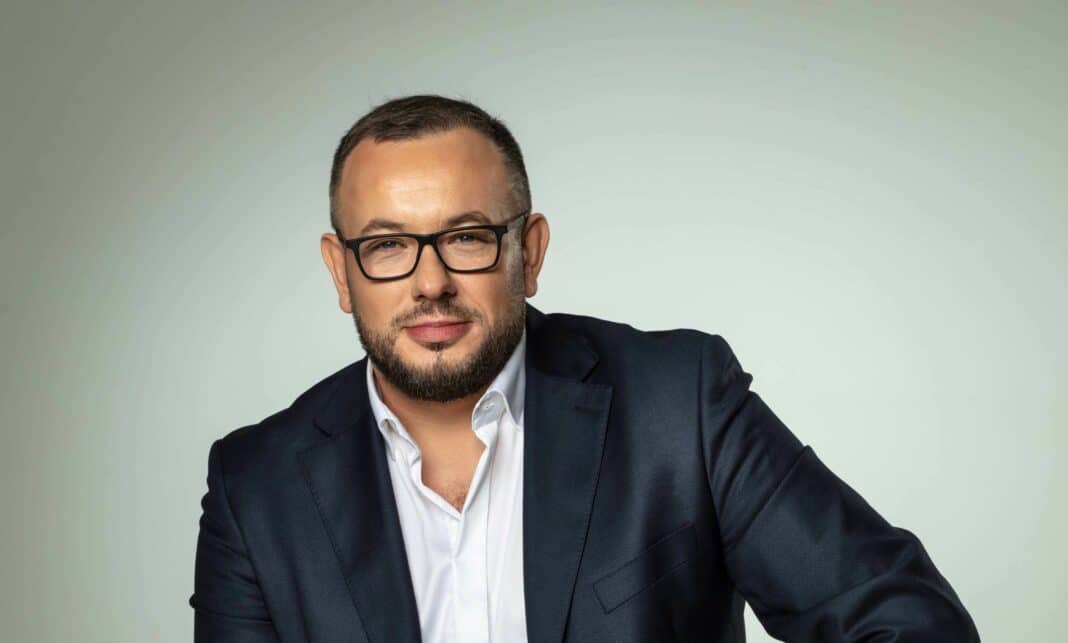Interview with Jacek Gbur, Member of the Board and Sales Director for Poland and the Baltic States at Kramp.
What trends are shaping the agricultural sector?
Kramp invests a lot in data and analyzes what is happening in the market. We want to understand what the trends are because all our business is tailored to the needs of our customers. We also look to the future and want to have at least a minimal impact on long-term trends. But looking at what is shaping the market today, I see three dominant trends. The first is the growing importance of sustainability. This is, of course, linked to the emphasis on organic and sustainable farming practices that have an impact on the environment. It is also linked to subsidies that enable Polish farms to become more efficient and productive. The second aspect is digitalization, new technologies, automation, drones, crop and animal monitoring systems and livestock control. We can already see all this in the fields in Poland, although we still have a lot of catching up to do compared to other, more developed, countries such as Germany, France or the Netherlands. That is why we at Kramp are focusing on education in order to raise the digital competence and competitiveness of Polish farms to the level of our Western counterparts. A third trend that I am very pleased to see is that Polish farmers are expanding into agri-tourism, processing or even direct sales of their own products.
How does Polish agriculture compare with that of the European Union? What are our positive points and what do we still need to work on?
Poland is now one of the leading producers of certain agricultural products in the EU, such as apples or poultry. There is also a very strong organic farming movement in Poland. More and more farms are opting for organic certification and sustainable breeding practices are gaining in popularity. We are also seeing a rapidly growing number of modern farms that have invested in innovative equipment, making them more efficient. Polish farmers are able to adapt quickly to change and take advantage of opportunities. All the modern solutions that we implement in countries that are more developed than Poland are quickly implemented here.
As far as improvements are concerned, in order to be competitive on the European market, we should increase the size of our farms. We still have a majority of small and medium-sized farms. It is therefore worthwhile for them to merge and consolidate. It is easier for larger farms to be more competitive, to invest in more modern solutions.
How do these elements, both positive and negative, that you mentioned relate to the recent NCBiR report Agriculture 4.0? The report talks about structural changes, processes of concentration of production resources, but it also mentions positive changes among farmers, the fact that they are becoming better educated and more open to new technologies and innovations. How do you see this?
As a former teacher, I have a feel for education. And I can see that Polish farmers want to learn. Only 15-20 years ago, the country’s agricultural colleges were written off, but today they are booming. More and more young people are choosing to study strictly agricultural subjects. They are often the children or grandchildren of farmers. They are carrying on the family tradition. The report you mentioned confirms this. We are seeing huge structural changes and processes of resource concentration in Poland. Many young people are replacing their parents and taking over their farms. They have new ideas, knowledge and are open to modern technology. They want to create successful businesses, they want to ensure a good life for themselves and their families for years to come. Young farmers are modernizing Polish agriculture. 25% of our customers are entrepreneurs aged 25-35. They are the ones who invest the most in modern technology. They are not afraid, they want to follow the trend.
What solutions in your offer, in terms of technologies, innovations, do you propose to farmers to support their daily activities?
There are many. Let’s start with accessories for modern agricultural machinery. This is what our company specializes in. We have a very wide range of products that support automation and precision farming. With these products, farmers can improve the efficiency of their machines. And the efficiency of the machines is the efficiency of their agricultural production. But let us not forget that products are one thing, but products have to be delivered. That is why it is impossible not to mention logistics services. Kramp is one of the best managed logistics companies in Poland. Logistics is the core of our business. When someone buys a product or service, they have to receive it. Delivery and fulfillment must take place at the right time and in the right place.

